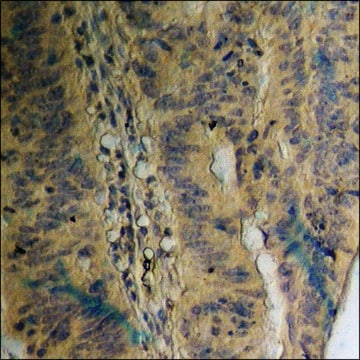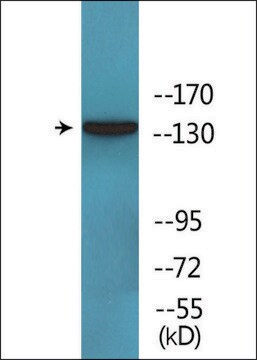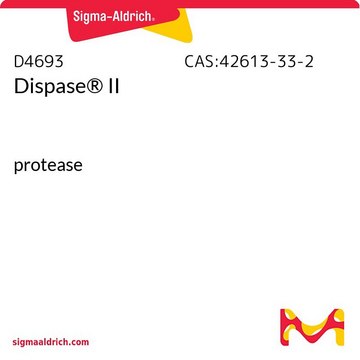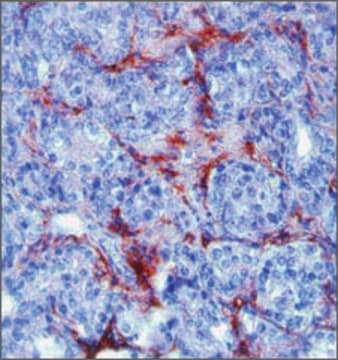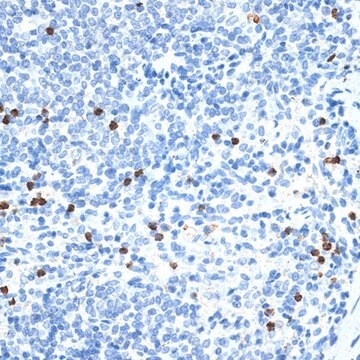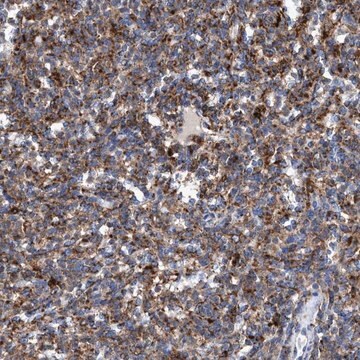SAB4300063
Anti-phospho-EGFR (pTyr1092) antibody produced in rabbit
affinity isolated antibody
Synonym(s):
Anti-ERBB antibody produced in rabbit, Anti-ERBB1 antibody produced in rabbit, Anti-HER1 antibody produced in rabbit, Anti-PIG61 antibody produced in rabbit, Anti-epidermal growth factor receptor (erythroblastic leukemia viral (v-erb-b) oncogene homolog, avian) antibody produced in rabbit
About This Item
Recommended Products
biological source
rabbit
conjugate
unconjugated
antibody form
affinity isolated antibody
antibody product type
primary antibodies
clone
polyclonal
form
buffered aqueous solution
mol wt
~175 kDa
species reactivity
human, rat
concentration
1 mg/mL
technique(s)
immunohistochemistry (formalin-fixed, paraffin-embedded sections): 1:50-1:100
western blot: 1:500-1:1000
isotype
IgG
immunogen sequence
(P-E-YP-I-N)
NCBI accession no.
UniProt accession no.
shipped in
wet ice
storage temp.
−20°C
target post-translational modification
phosphorylation (pTyr1092)
Gene Information
human ... EGFR(1956)
Immunogen
Features and Benefits
Target description
Physical form
Disclaimer
Not finding the right product?
Try our Product Selector Tool.
Storage Class Code
10 - Combustible liquids
WGK
WGK 1
Flash Point(F)
Not applicable
Flash Point(C)
Not applicable
Certificates of Analysis (COA)
Search for Certificates of Analysis (COA) by entering the products Lot/Batch Number. Lot and Batch Numbers can be found on a product’s label following the words ‘Lot’ or ‘Batch’.
Already Own This Product?
Find documentation for the products that you have recently purchased in the Document Library.
Our team of scientists has experience in all areas of research including Life Science, Material Science, Chemical Synthesis, Chromatography, Analytical and many others.
Contact Technical Service
